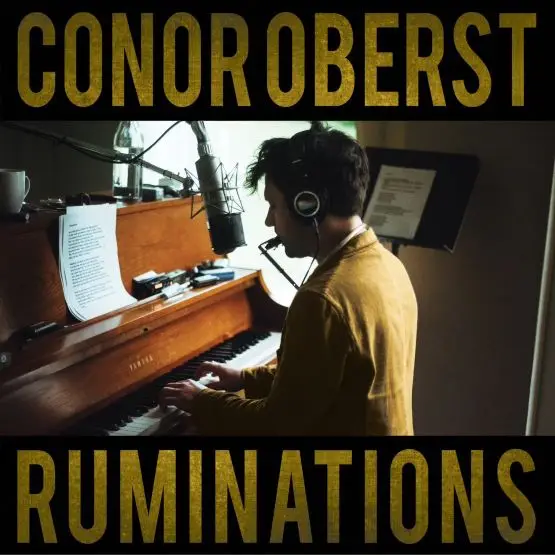Interview Conor Oberst: “I’m Certainly Not Confessing Anything”
Conor Oberst has put on his solo hat for new album, ‘Upside Down Mountain’.
You can forgive Conor Oberst for seeming a little disheveled. Smack bang in the middle of a whistle-stop European press tour to promote his new album ‘Upside Down Mountain’, his warm Nebraskan drawl sounds a little sleepier then usual. “We’re leaving tomorrow morning for Berlin,” he exhales, with an air of peaceful resignation. Despite any fleeting signs of fatigue, he’s remains effusive - with large doe eyes and soft, somnolent vowels. “I like London a lot, I’ve been here so many times. I need to figure out all the tube stuff better… but once you get where you’re going, it’s pretty rad.”
Having been in the game for over two decades, Conor’s musical pursuits and creative collaborations have been vast and varied. A member of Bright Eyes, Desaparecidos, Monsters of Folk and many others, ‘Upside Down Mountain’ is his second ever solo record. “I feel like I’ve been pretty invested in all the different projects and records I’ve made,” he says, “I think to a lot of outside people it’s sort of splitting hairs, like – ‘Why does this guy need so many bands?!’ - but to me they all sort of make sense.” He sees each project as a way of collaborating, fusing together different minds and ideas to create something new. “When I get to do a record on my own, I guess I’m a little more free to call the shots,” he ponders, before hastily adding, “but then again I produced the record with this guy Jonathan Wilson, who is such a big part of it… he comes from a bit of a different musical background then I do, so I think that the record is sort of where our ideals intercept a little bit.”
It’s certainly a new direction for Conor – ‘Upside Down Mountain’ is catchier, sunnier and softer then any of his previous releases, and it’s served with a soothing shot of Americana – something Wilson is famous for. “The songs were written, by my standards, over a longer period of time then some of my other records… probably 3 years or so,” he removes his beanie to reveal a mass of tousled black hair. “It was kind of made in 3 places… we did a bunch of stuff in LA, where [Jonathan] lives in this studio house, and I took those sessions back to Nebraska where [Bright Eyes] still have a studio… And then, for the final step, Jonathan and I went to Nashville to this really amazing studio called Blackbird.” The homeland of American country, it was Conor’s first time recording a album in the Tennessee city. “There’s a lot going on… that big business country music stuff is pretty wild, and a whole world that I don’t really understand,” he says, his eyes wide, “…there’s such a kind of Old Boy network, kind of old country - plus its the south, so it has all those traditions and baggage that, for better or worse, comes with that whole part of America.”
The new album sees a welcome return to more personal songwriting from Oberst – something markedly different to 2011’s last Bright Eyes release, ‘The People’s Key’. “I kind of intentionally wanted the words on that to be very dense and almost cryptic - my hope was that if you started to listen to it enough it would start to reveal itself - but I think some people just didn’t want to listen to it that much so they never got to that part,” he laughs. “I felt like the music we were making was some of our most accessible pop music… so I wanted the words to kind of be the opposite - like, you’d need some kind of decoder ring to understand it.” With ‘Upside Down Mountain’, though, it’s back to basics - “I think I was just sort of ready to write in a more conversational style, you know? A lot of people call that confessional - which I don’t agree with because I’m certainly not confessing anything about myself – but I think conversational is a term I would use more.”
Over the years, it’s fair to say that certain themes have constantly cropped up in Conor’s songwriting. Whether it’s spirituality, humanity or religion - he has never been one to shy away from the bigger issues. “Some people will tell you it’s a waste of time to think about those things or to ponder them too much, because it’s not going to ever come to any solid answers,” he leans back, “maybe I should be over it by now or something, but I’ve always been maybe preoccupied with that. I guess those kind of existential dilemmas… To me that’s the real function of art and music, exploring that basic idea of the human condition and what we all have in common.”
This philosophical approach is something that is no doubt influenced by his childhood. Raised by his Catholic parents, he attended a Jesuit high school - but grew up free of any religious beliefs. “I think growing up catholic, or growing up in any sort of religion, it’s obviously going to be very formative to how you see the world.” Though he doesn’t consider himself to be religious now, he doesn’t necessarily disagree with the idea as a whole– “I think it’s great that everyone can believe what they want - [but] I find organised religion to be a pretty damaging force in the world in general. I think spirituality on the other hand… trying to connect with the universe, the mystery and the unknown, and humanism, and the idea of seeing yourself in other people…” He starts to trail off then shrugs, “my mind is always changing.”
With politics it’s the same story, “I kind of fall in and out of politics - at least in my country, it’s so unbelievably frustrating.” His involvement has stretched from the “cartoonish” political propaganda of Desaparecidos, to the urgent and iconic anti-Bush anthem ‘When the President Talks to God’ – a song he controversially performed on Jay Leno’s Tonight Show in 2005. “At the time I felt like I had to like [say something]. It didn’t seem like anyone was saying anything about how crazy this person was, you know? And so, that song was barely even a song… It’s like a commercial for ideas.” As a big supporter of Obama in his first presidential campaign, after two Democratic terms Conor has started to sound despondent - “they used to say it’s the difference between Pepsi and Coke, whereas I feel like it’s the difference between Coke and Diet Coke really – it’s like so little difference [between the Democrats and Republicans].”
But his gutsy songwriting and ferocious curiosity show no signs of wavering despite any of these disappointments. “I’m not naive enough to say ‘music can change the world’ because I don’t believe that,” he asserts, “but [music] can get behind enemy lines… it is something you take into your house with you, into your bedroom, into your most private moments, into your ears - and so if that music is communicating something… maybe its just a political message or maybe its like ‘try to be empathetic to your fellow human’ or like ‘dream big, think about the ways the world could be better’ - then that affects that person.”
Conor Oberst’s new album ‘Upside Down Mountain’ will be released on 19th May via Nonesuch Records.
Taken from the new, free DIY Weekly, available to read online, download on Android via Google Play, or download on iPad now.
It’s certainly a new direction for Conor – ‘Upside Down Mountain’ is catchier, sunnier and softer then any of his previous releases, and it’s served with a soothing shot of Americana – something Wilson is famous for. “The songs were written, by my standards, over a longer period of time then some of my other records… probably 3 years or so,” he removes his beanie to reveal a mass of tousled black hair. “It was kind of made in 3 places… we did a bunch of stuff in LA, where [Jonathan] lives in this studio house, and I took those sessions back to Nebraska where [Bright Eyes] still have a studio… And then, for the final step, Jonathan and I went to Nashville to this really amazing studio called Blackbird.” The homeland of American country, it was Conor’s first time recording a album in the Tennessee city. “There’s a lot going on… that big business country music stuff is pretty wild, and a whole world that I don’t really understand,” he says, his eyes wide, “…there’s such a kind of Old Boy network, kind of old country - plus its the south, so it has all those traditions and baggage that, for better or worse, comes with that whole part of America.”
The new album sees a welcome return to more personal songwriting from Oberst – something markedly different to 2011’s last Bright Eyes release, ‘The People’s Key’. “I kind of intentionally wanted the words on that to be very dense and almost cryptic - my hope was that if you started to listen to it enough it would start to reveal itself - but I think some people just didn’t want to listen to it that much so they never got to that part,” he laughs. “I felt like the music we were making was some of our most accessible pop music… so I wanted the words to kind of be the opposite - like, you’d need some kind of decoder ring to understand it.” With ‘Upside Down Mountain’, though, it’s back to basics - “I think I was just sort of ready to write in a more conversational style, you know? A lot of people call that confessional - which I don’t agree with because I’m certainly not confessing anything about myself – but I think conversational is a term I would use more.”
Over the years, it’s fair to say that certain themes have constantly cropped up in Conor’s songwriting. Whether it’s spirituality, humanity or religion - he has never been one to shy away from the bigger issues. “Some people will tell you it’s a waste of time to think about those things or to ponder them too much, because it’s not going to ever come to any solid answers,” he leans back, “maybe I should be over it by now or something, but I’ve always been maybe preoccupied with that. I guess those kind of existential dilemmas… To me that’s the real function of art and music, exploring that basic idea of the human condition and what we all have in common.”
This philosophical approach is something that is no doubt influenced by his childhood. Raised by his Catholic parents, he attended a Jesuit high school - but grew up free of any religious beliefs. “I think growing up Catholic, or growing up in any sort of religion, it’s obviously going to be very formative to how you see the world.” Though he doesn’t consider himself to be religious now, he doesn’t necessarily disagree with the idea as a whole– “I think it’s great that everyone can believe what they want - [but] I find organised religion to be a pretty damaging force in the world in general. I think spirituality on the other hand… trying to connect with the universe, the mystery and the unknown, and humanism, and the idea of seeing yourself in other people…” He starts to trail off then shrugs, “my mind is always changing.”
With politics it’s the same story, “I kind of fall in and out of politics - at least in my country, it’s so unbelievably frustrating.” His involvement has stretched from the “cartoonish” political propaganda of Desaparecidos, to the urgent and iconic anti-Bush anthem ‘When the President Talks to God’ – a song he controversially performed on Jay Leno’s Tonight Show in 2005. “At the time I felt like I had to like [say something]. It didn’t seem like anyone was saying anything about how crazy this person was, you know? And so, that song was barely even a song… It’s like a commercial for ideas.” As a big supporter of Obama in his first presidential campaign, after two Democratic terms Conor has started to sound despondent - “they used to say it’s the difference between Pepsi and Coke, whereas I feel like it’s the difference between Coke and Diet Coke really – it’s like so little difference [between the Democrats and Republicans].”
But his gutsy songwriting and ferocious curiosity show no signs of wavering despite any of these disappointments. “I’m not naive enough to say ‘music can change the world’ because I don’t believe that,” he asserts, “but [music] can get behind enemy lines… it is something you take into your house with you, into your bedroom, into your most private moments, into your ears - and so if that music is communicating something… maybe its just a political message or maybe its like ‘try to be empathetic to your fellow human’ or like ‘dream big, think about the ways the world could be better’ - then that affects that person.”
Conor Oberst’s new album ‘Upside Down Mountain’ will be released on 19th May via Nonesuch Records.
Read More
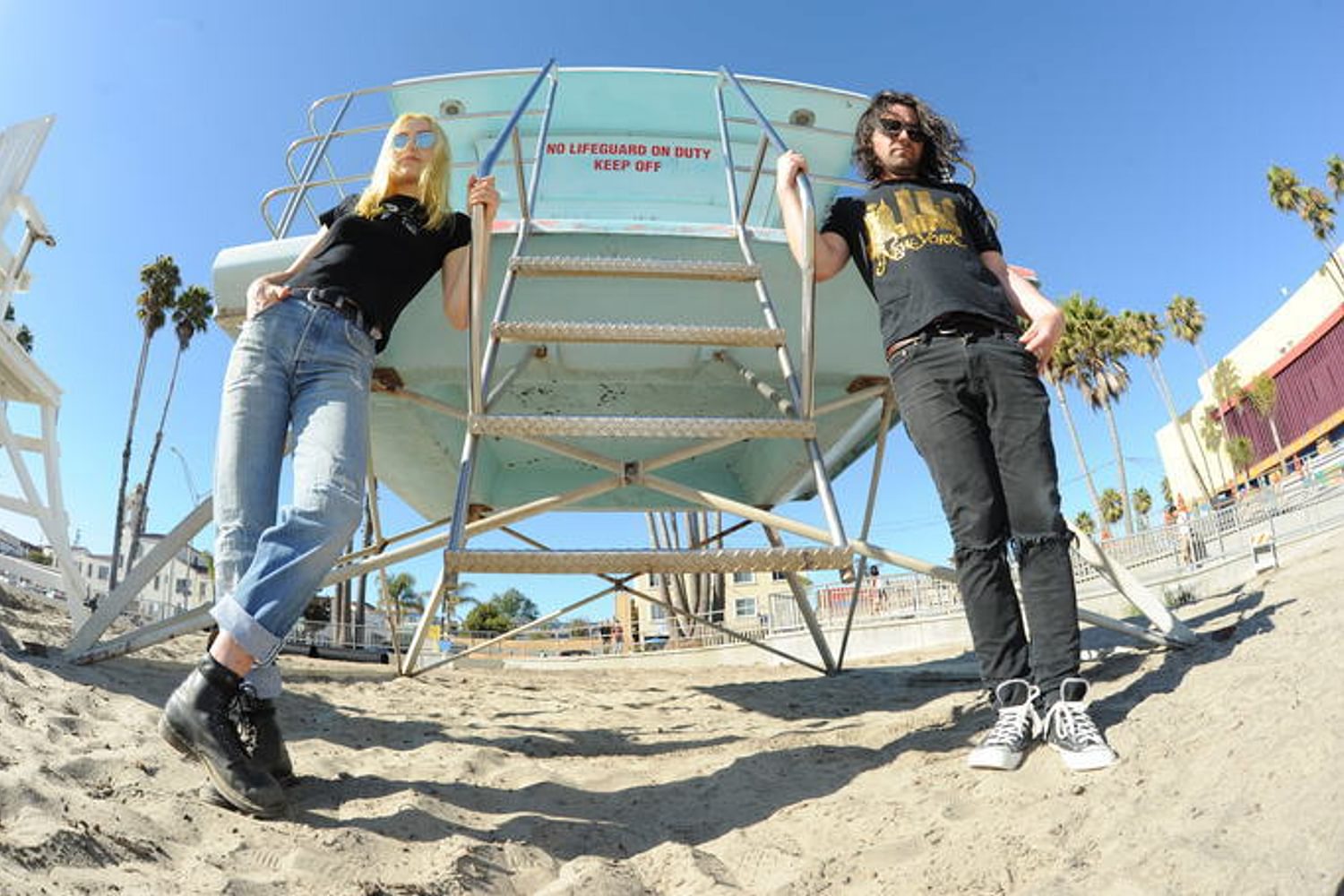
Better Oblivion Community Center share ‘Little Trouble’ from new 7”
The new vinyl has been sold at the pair's recent live shows, and also features a new version of 'Sleepwalkin''.
24th April 2019, 12:00am
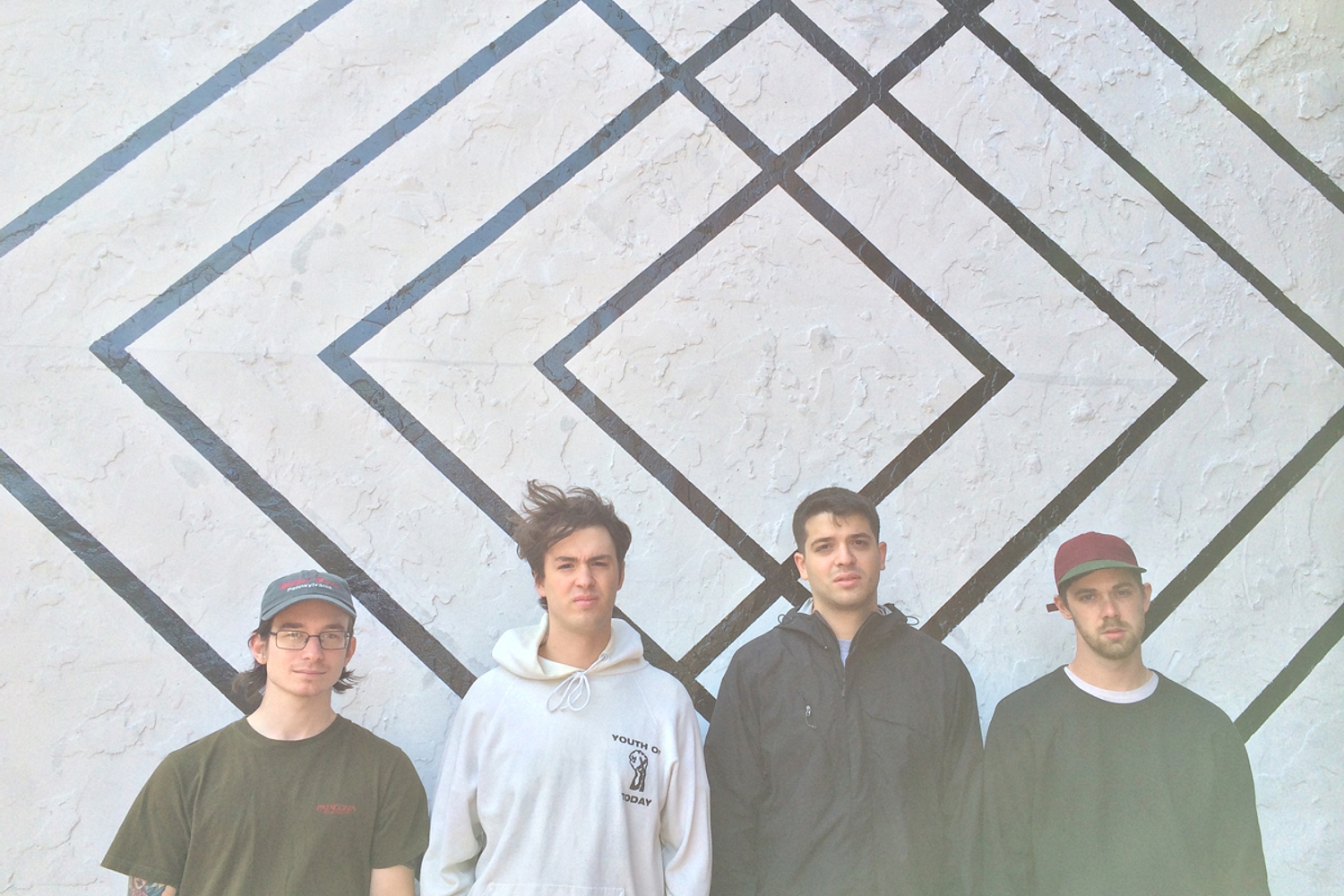
Conor Oberst announces North American tour
He’ll head out solo in July.
16th April 2019, 12:00am
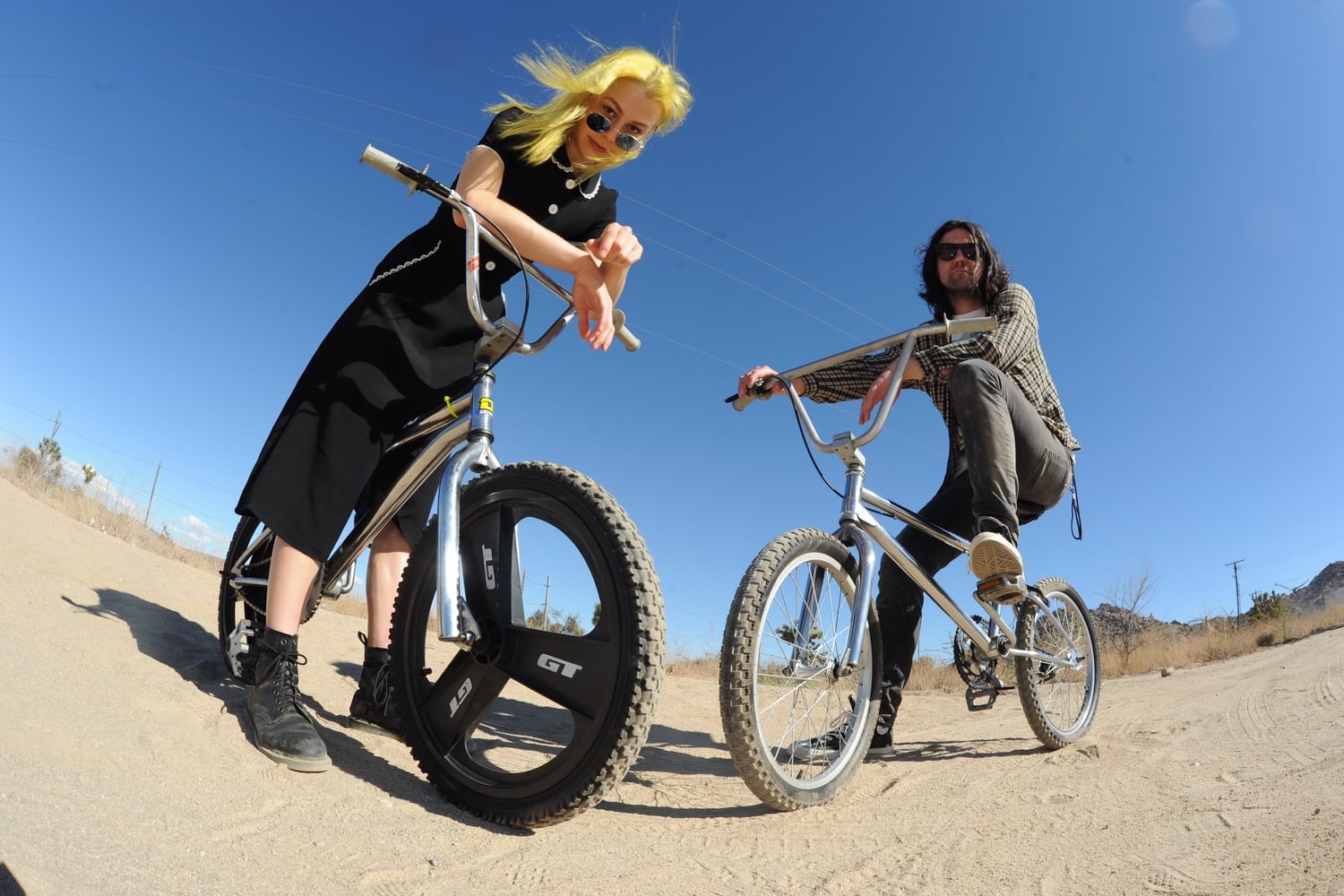
Watch Phoebe Bridgers and Conor Oberst cover ‘Shallow’
Better Oblivion Community Center gave their rendition of the 'A Star Is Born' track in Brooklyn last night.
2nd April 2019, 12:00am
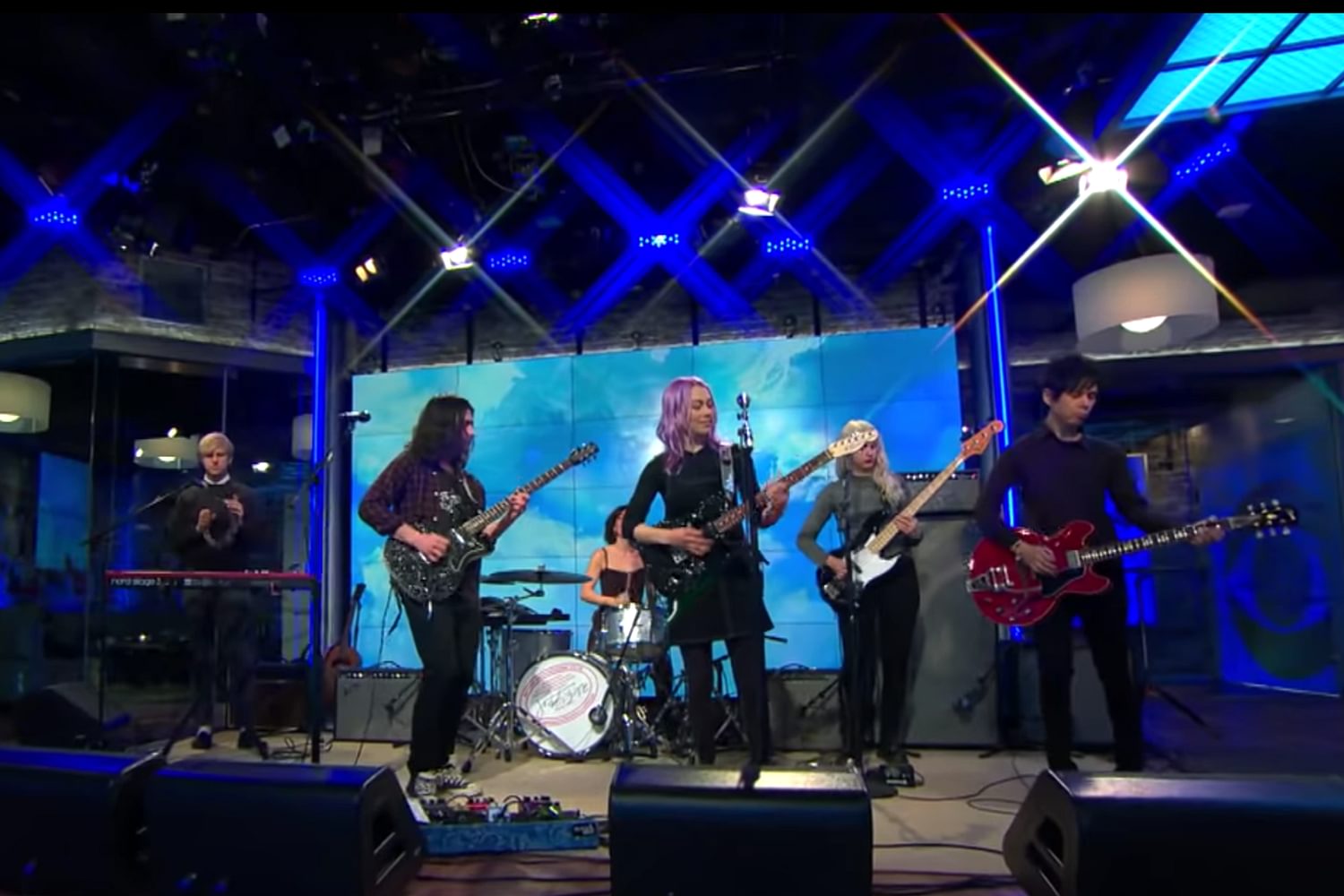
Watch Phoebe Bridgers and Conor Oberst bring Better Oblivion Community Centre songs to CBS This Morning
The collaborative album came out via Dead Oceans last week.
28th January 2019, 12:00am
With Bob Vylan, St Vincent, girl in red, Lizzy McAlpine and more.
